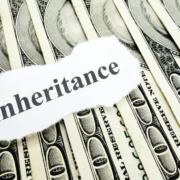If you and your child’s other parent cannot agree on a custody and visitation plan here in Bucks County, a judge may order a child custody evaluation. It involves a mental health expert, usually a psychologist, who will evaluate your family and recommend a custody/visitation or parenting plan to the court. It is not something to fear, but you should understand and prepare for it.
What is a Child Custody Evaluation?
After gathering and evaluating information about your family, the evaluator will recommend a plan to the parents and the court. The parties may have evaluations done; the court will order one with an evaluator of their choice, or both.
Ideally, you and your ex-spouse will use the recommendation to reach an agreement. If not, the judge can use the evaluation and other evidence to write a custody/visitation order for your family.
What is the Evaluation Process?
Not all evaluators use the same process, but there are certain things you should expect in your evaluation. They include:
- Two to three interviews with each parent
- At least two interviews with each child
- Observations of the children with each parent
- A review of court filings and other written information
- Contact with other sources (therapists, pediatricians, teachers, daycare staff)
- A written report recommending custody/visitation rights and schedules addressing the significant concerns raised by the parties
- Possible psychological testing or questionnaires about your emotional functioning or parenting style
- A visit to each parent’s home
Be cooperative and facilitate the evaluation the best you can.
What Should I Tell My Children About This?
If they do not already know, you should tell your child that there are conflicts between the parents and that they have different views about how much time each should spend with the children. The evaluator is involved to learn more about the family, help them reach a resolution, and suggest ways they can be better parents.
You should reassure your child that both parents love them and that they will both be part of their lives. You should also tell your kids to bring up any concerns they have, ask questions, and honestly answer those posed by the evaluator.
How Should I Approach the Evaluation?
We will discuss it before the evaluation takes place and prepare you for it. You should ask us any questions you have. The evaluator wants to understand your family, its dynamics, and relationships. You should relax as much as possible and be honest. Your job is to talk about yourself and describe the situation as it pertains to what is in your child’s best interests, not to put on a show for the evaluator.
Be open and honest. If asked, do not be afraid to say negative things about yourself or your parenting skills. But put your situation in context. Tell the evaluator what you learned and how it helped you be a better parent.
Be open and honest about the other parent. If you just criticize them, the evaluator will not think you are being honest or credible. It is best to be truthful, even if that includes saying positive things about the other parent.
If things about them concern you, say why, and discuss specific incidents or occurrences that support your feelings. Just accusing the other parent of being too angry or controlling without anything to back it up will not help you. To the best of your memory, give specific reasons why you have certain fears or feelings about the other parent, given that the outcome should reflect your child’s best interests.
Get the Help You Need From an Attorney You Can Trust
If you are considering a divorce or filing for custody of your child, call our office at (215) 608-1867. A custody evaluation may be part of the process. We will explain it, help you through it, and use the recommendations to help you achieve your goals. We can speak over the phone, via a teleconference, or meet in our Doylestown or Langhorne offices.






